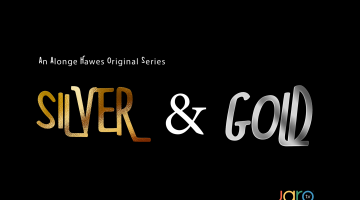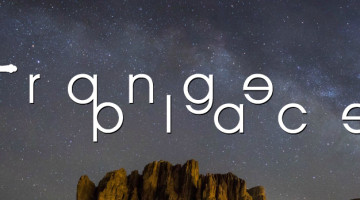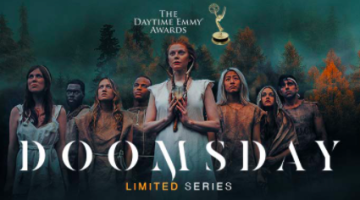Last night I was mucking around on Facebook, something I’m generally not too proud of. The site masquerades as a digital extension of our social lives but what it really is is the most easily accessible façade we can curate to alter people’s perceptions of ourselves.
In between the pictures of old friends having good times without me, and ex-girlfriends hanging out with other guys was an article about Robert Downy Jr, and a bit of inspiration for this article.
People like to complain when they see others making absurd amounts of money, but understanding the ‘why’ might be helpful for us little folk.
Now, until recently I kept my friends list to people I genuinely knew and had real relationships with, and yet I would feel like I was missing something when I saw people with 600+ ‘friends.’
As human beings we can only manage in the neighborhood of 100 real relationships before we get too scatterbrained and can’t remember who our own brother is, or something like that. That girl with 632 friends isn’t the social butterfly she pretends to be on Facebook but that doesn’t mean there is no benefit to that list.
I wonder how many friends Robert has?
 Take my mom for example. She is really good at Mafia Wars… I’m not totally sure how the game works, so this part here might be bullshit, but there is a good point to be made either way. In the game your ‘friends’ are your ‘family’ and when mafia families battle it out your ability to organize and deploy as a group is paramount to ‘winning’ the ‘war.’
Take my mom for example. She is really good at Mafia Wars… I’m not totally sure how the game works, so this part here might be bullshit, but there is a good point to be made either way. In the game your ‘friends’ are your ‘family’ and when mafia families battle it out your ability to organize and deploy as a group is paramount to ‘winning’ the ‘war.’
I used to shake my head and wonder not just how, but why my mother had something like 3,000 Facebook ‘friends.’
She’s really good at Mafia Wars… You should see how a simple post to her wall attracts her whole ‘family.’ It’s all very impressive, though not nearly as impressive as Iron Man 3’s $1.2 billion world wide gross last year.
When I sat down to plan a way to market the first series I helped produce, “I Don’t” I thought, what would I have to do to be able to reach 3,000 people?
I went home from a meeting with my co-producers, logged on to Facebook and clicked “accept” on all of those friend requests I had ignored, but which never actually went away. It felt weird, but it was something of an epiphany. My mom isn’t friends with 3,000 people, but her ‘family’ listens when she posts. I think she’s signing them all up for an MLM right now…
When you are ‘friends’ on Facebook, have followers on Twitter or Instagram, have readers to your blog, subscribers on YouTube, listeners to your podcast viewers on your television network, fans of your movies or any other medium what you really have is a means of communication. You have the ability to plant ideas in the heads of every one of those people.
You can incept them!
As content producers that is our job. We need to convince people that watching our shit is what they want to do. Everything we do after we export that last video at 3 AM on a Tuesday night is about communication – it’s about managing people’s perception of us and our product. What’s interesting is that for those first 100 or so real friends it’s a lot tougher to do, but for all those people that come after it’s a lot easier.
This is where a lot of people seem to go wrong. They stick to their own Facebook pages, their own twitter accounts and when they try to grow further they create an Instagram. Think of whom you follow and the networks you are active on. 1,000 Facebook likes and 1,000 twitter followers does not mean 2,000 people, it’s two chances to reach 1,000 people.
There is only so far we can go with our own networks, even if we’re Justin Beiber all we can hope to do is convince a large percentage of our followers to do our bidding. What we need is to focus on growth – increasing our own influence.
We do that by harnessing the influence of others.
Do you think the Bieber’s and the Downy Jr’s of the world did this all on their own? RDJ is almost 50 years old, and he’s spent his entire life growing his personal influence one step at a time.
Of course reaching people is one thing, reaching the right people is another. Your ad targeted to all of Los Angeles on Craigslist for your used blender is not as valuable as knowing a guy in the market for a used blender.
Influence is a tricky thing. We can’t just look at the reach of our Facebook page, or our podcast listener count. As people trying to communicate to others we have to ask ‘why’ these people follow the people that they do. Why are people listening to this podcast, why are they following on Facebook, why do they like your Instagrams?
 Internet marketers will use the term ‘engagement’ but what we are really looking for is trust. Do those 10k twitter followers ‘trust’ the person they are following, or is there something else at work? Do you trust that a movie starting Robert Downy Jr. will be good?
Internet marketers will use the term ‘engagement’ but what we are really looking for is trust. Do those 10k twitter followers ‘trust’ the person they are following, or is there something else at work? Do you trust that a movie starting Robert Downy Jr. will be good?
Trust is how likely a follower is to buy into a recommendation, endorsement or sponsor.
In social media terms our influence can be measured by our number of followers times their level of trust. There are people out there right now, at companies like Klout trying to show this mathematically. There is probably a lot of money to be made by anyone capable of creating an accurate numerical value for our social media accounts. Still it is an inexact science, as the product being endorsed is just as important as the person endorsing it.
So, dear reader, do not fear a need to run to your calculator, as your gut and some due diligence will tell you all you need to know. A movie critic with 15k followers on twitter probably has a high level of trust, when it comes to movies, with his followers. Get that same critic to tweet out your Craigslist blender ad and the trust level is a lot lower.
When you know your product and you know your pitch it’s not too difficult to estimate the amount of influence others might harness for you. Your challenge is to connect with the right key influencers for your product.
So as you sit there at 3 AM on Wednesday night, pondering just how you can get people to watch your new show, consider the concept of influence.
Start with your own. Where are you right now? What do people trust you for? How can you make those numbers grow? Who can I connect with that can help?
This is probably the most important set of questions you can ask at this stage of your career. Why do you think certain actors are cast in certain movies? Why do you think certain directors are allowed certain budgets? Why did Robert Downy Jr. earn $75 million last year?
The answer is influence.










Thank you Eric. Very well written and insightful, as well as, helpful. This article is timely and very much needed. As a storyteller, and one that recently embraced the online community as a means to get our stories out in search of an audience, a realization occurred that just posting the story and expecting that it would get noticed by the masses was not going to happen, and asking for it was even worse. Scripted stories do not go viral, they build audiences very very slowly, which is an oxymoron considering the speed of the internet. But, in fact, the more modern we get, the more we are really like the world of our grandparent or great grandparents, it’s the interactions we have with our online platform communities that we reside in. It boils down to the conversations we have with each other. Storytellers that are patient, creative, and relentless at telling stories are going to find their audience one comment at a time. Everything creative needs an audience, I have enjoyed becoming yours and look forward to your creative endeavors. Add Marc and I to your list.
Thanks for the comment Shawn. It’s really interesting to see that the more things change the more they stay the same.
There is very much a snowball effect at play here. You have to get the ball rolling, and the more you can put in on the front end of things the more you get out in the end. This is exponential growth but most of us are starting too small to take advantage of it.
Before the challenge was to find a way to hitch a ride on the pre-existing avalanche. Now we have to build it all ourselves.
Be sure to check back later this week when I post a follow up piece to this article.